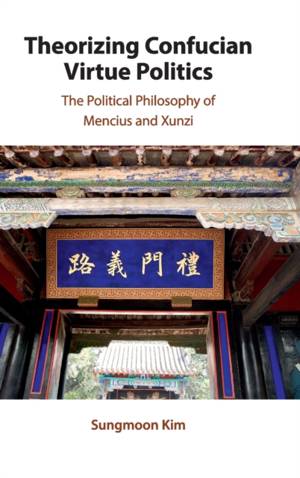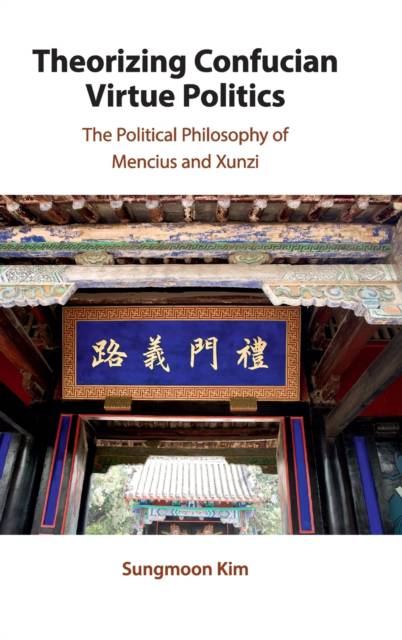
- Afhalen na 1 uur in een winkel met voorraad
- Gratis thuislevering in België vanaf € 30
- Ruim aanbod met 7 miljoen producten
- Afhalen na 1 uur in een winkel met voorraad
- Gratis thuislevering in België vanaf € 30
- Ruim aanbod met 7 miljoen producten
Zoeken
Theorizing Confucian Virtue Politics
The Political Philosophy of Mencius and Xunzi
Sungmoon Kim
Hardcover | Engels
€ 125,95
+ 251 punten
Uitvoering
Omschrijving
Surprisingly little is known about what ancient Confucian thinkers struggled with in their own social and political contexts and how these struggles contributed to the establishment and further development of classical Confucian political theory. Leading scholar of comparative political theory, Sungmoon Kim offers a systematic philosophical account of the political theories of Mencius and Xunzi, investigating both their agreements and disagreements as the champions of the Confucian Way against the backdrop of the prevailing realpolitik of the late Warring States period. Together, they contributed to the formation of Confucian virtue politics, in which concerns about political order and stability and concerns about moral character and moral enhancement are deeply intertwined. By presenting their political philosophies in terms of constitutionalism, Kim shows how they each developed the ability to authorize the ruler's legitimate use of power in domestic and interstate politics in ways consistent with their distinctive accounts of human nature.
Specificaties
Betrokkenen
- Auteur(s):
- Uitgeverij:
Inhoud
- Aantal bladzijden:
- 248
- Taal:
- Engels
Eigenschappen
- Productcode (EAN):
- 9781108499422
- Verschijningsdatum:
- 2/01/2020
- Uitvoering:
- Hardcover
- Formaat:
- Genaaid
- Afmetingen:
- 152 mm x 229 mm
- Gewicht:
- 467 g

Alleen bij Standaard Boekhandel
+ 251 punten op je klantenkaart van Standaard Boekhandel
Beoordelingen
We publiceren alleen reviews die voldoen aan de voorwaarden voor reviews. Bekijk onze voorwaarden voor reviews.











